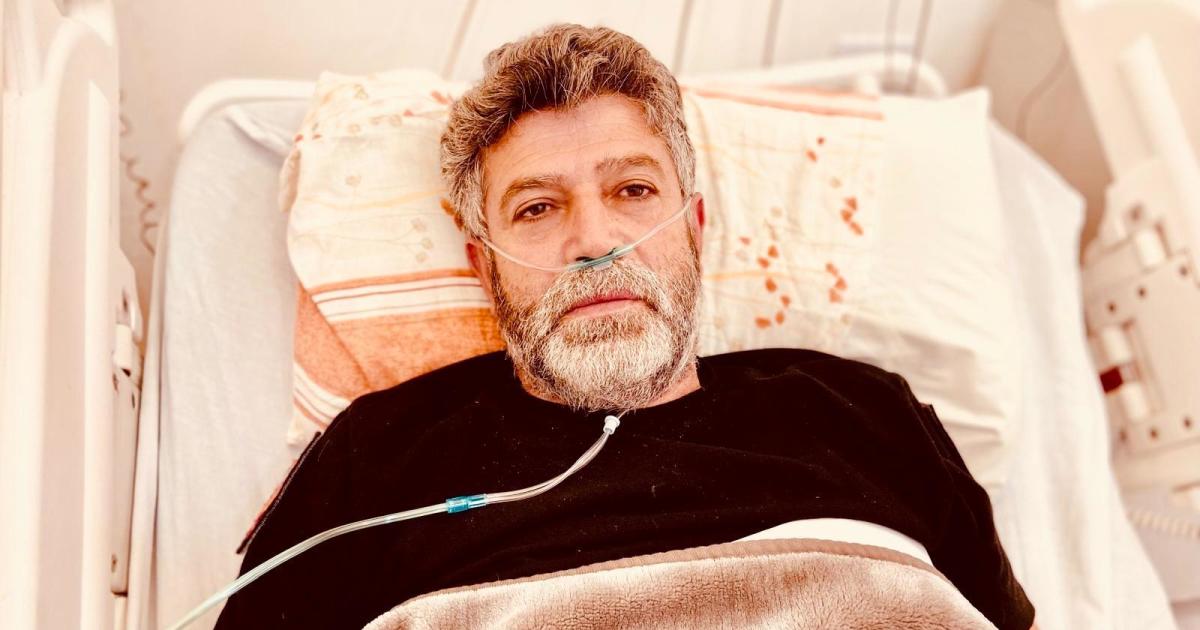The ongoing conflict in Lebanon has resulted in a devastating humanitarian crisis, with countless civilians caught in the crossfire. The intensity of the fighting, fueled by the ongoing Israeli-Hezbollah conflict, has left a trail of destruction and immense suffering. Medical workers, risking their lives daily to save others, are increasingly becoming targets themselves, highlighting the extreme brutality and disregard for human life in this war. The situation necessitates immediate attention to alleviate the immense suffering and protect the lives of medical personnel who are vital to the survival of those affected.
The Perilous Work of Lebanese First Responders
Facing Direct Targeting Accusations
Lebanese first responders are bravely facing immense challenges in the midst of the conflict. Teams like Hussein Fakih’s in Nabatiyeh, situated less than 10 miles from the Israeli border, have reported being directly targeted by Israeli forces. Despite their vehicles being clearly marked with internationally recognized rescue symbols, the attacks persist. This raises serious concerns about the potential for war crimes, as deliberately targeting medical personnel and facilities is a violation of international humanitarian law. The number of casualties among rescue workers reflects the escalating dangers they confront, further diminishing their ability to aid the population. The alleged deliberate targeting casts doubt on the Israeli Defense Forces’ (IDF) claim to adhere to international law. Fakih’s account underscores the perilous reality for medical professionals, fighting for survival alongside civilians amidst indiscriminate attacks. The relentless barrage of strikes forces them to navigate not only the immediate physical threats but also the mental and emotional trauma of witnessing and experiencing immense suffering.
Heavy Casualties and Immense Strain
The human cost is staggering. At least 120 healthcare workers, according to CBS News, have been killed since the escalation of the conflict in mid-September 2023, with many more wounded. This includes members of Fakih’s team, who have sustained significant losses both in personnel and equipment. The continuous shelling and airstrikes are severely limiting their ability to provide effective emergency care, rendering them woefully short-staffed. The relentless demands on the dwindling number of rescuers increase stress and fatigue significantly, making each mission potentially more life-threatening. Every mission brings an elevated risk of injury or death but these selfless individuals endure due to their dedication.
The Psychological Toll of Continuous Exposure
The impact on mental health is substantial. For first responders like Hussein Jaber, witnessing the death of his colleague Naji Fahs, emphasizes the emotional cost of working under these extreme conditions. The pervasive atmosphere of violence and death affects not just those immediately involved, but entire communities. Chronic stress resulting from sustained violence significantly impairs psychological well-being among frontline medical workers.
Israel’s Response and the Humanitarian Crisis
IDF’s Claims and Alleged Advanced Warnings
The IDF maintains it operates within international law and states it makes “all feasible efforts” to minimize civilian harm. The IDF also claims to provide “advanced warnings” where Hezbollah embeds military assets in civilian areas. However, the numerous reports from Lebanese civilians and rescuers contradict these claims. These accounts illustrate the inconsistency between the IDF’s claims and on-the-ground realities faced by the population and responders in affected zones. The discrepancies highlight the critical need for independent investigation to validate and verify these accusations.
The Scale of the Humanitarian Emergency
The conflict’s impact transcends the immediate casualty figures. The destruction of infrastructure, widespread displacement, and shortages of essential resources contribute to a profound humanitarian crisis in Lebanon. The United Nations and international organizations continue to grapple with logistical difficulties when providing aid in the conflict zone. Ambulances and relief centers have also faced attacks, increasing the challenge in providing emergency medical care and essential supplies. The combination of physical damage and lack of access greatly exacerbates an already alarming situation.
The Urgent Need for International Action
Protecting Medical Personnel
The deliberate targeting of medical personnel necessitates immediate international attention. There’s a need to ensure that appropriate measures are taken to protect those who provide vital emergency care and are themselves at substantial risk. The international community needs to actively call for the protection of humanitarian workers and civilian infrastructure during wartime. Enforcement of international laws becomes necessary to ensure adherence to established ethical guidelines, such as the Geneva Conventions, prohibiting attacks targeting medical personnel.
Addressing the Humanitarian Emergency
The escalating humanitarian crisis demands a robust international response. The global community must provide sufficient aid to meet the urgent needs of those affected by this brutal conflict. Financial and logistical support needs to bolster the capacities of humanitarian organizations actively involved in providing aid to alleviate suffering and meet crucial demands on the ground. The collaborative efforts of international bodies will become instrumental in securing long-term humanitarian assistance.
Takeaway Points
- The conflict in Lebanon has led to a severe humanitarian crisis, significantly impacting civilians and medical workers.
- Lebanese first responders report being deliberately targeted, leading to substantial casualties and raising concerns about war crimes.
- The IDF claims to adhere to international law and give advanced warnings, but this is contradicted by numerous eyewitness accounts.
- The situation requires immediate international action to protect medical personnel, address the humanitarian emergency, and hold those responsible for violations of international law accountable.









